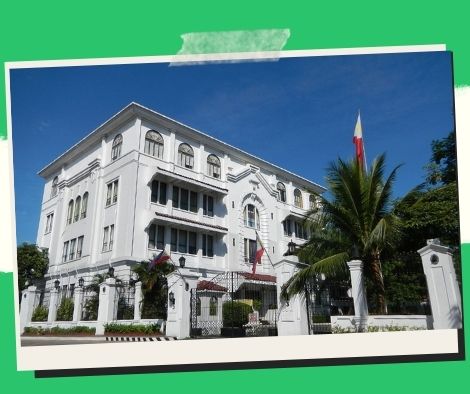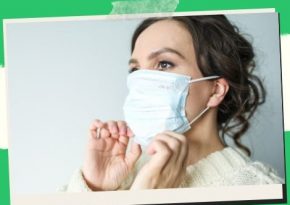
YEAR IN REVIEW: A look back at Duterte’s final year in office.
President Rodrigo R. Duterte may have prioritized the country’s coronavirus disease 2019 (Covid-19) pandemic response during his final full year in Malacanang Palace, but he did not relent in his administration’s fight against corruption and illegal drugs, as well as efforts to defend the country’s sovereignty and territory.
Despite certain flaws, Duterte declared in a speech on December 2 that he is proud of having fulfilled “nearly all” of his campaign promises.
In the second year of the Covid-19 outbreak, Duterte reiterated his plea for vaccines to be considered as a “global public benefit” and chastised the European Union (EU) for allegedly impeding vaccine mobility.
As Covid-19 cases increased, Duterte imposed the strictest enhanced community quarantine (ECQ) in specific parts of the country in March but lifted restrictions in the months after as infections fell.
In March, the Philippine government took another step forward in its Prevent-Detect-Isolate-Test-Reintegrate (PDITR) policy by launching Covid-19 vaccines.
After the government launched a series of awareness materials and advertisements, including an infomercial featuring Duterte inviting the public to get immunized against Covid-19 in June, more Filipinos were gradually persuaded to get their shots.
In the same month, Duterte announced a USD1 million donation to the COVAX global vaccine sharing project, which aims to improve immunization campaigns in low-income nations.
The President ordered the Food and Medicine Administration (FDA) to conduct clinical research on the use of the anti-parasitic drug Ivermectin to treat Covid-19 sufferers in April, but later stated that he would leave the decision up to doctors and their patients.
Duterte received his first dose of the Sinopharm Covid-19 vaccine in May and his second dosage in July to encourage other Filipinos to get vaccinated.
In November, Duterte confined the mandate to healthcare settings, citing a drop in Covid infections and popular pressure to repeal the face shield ban in favor of face masks.
Corruption
Apart from naming officials who have been suspended or fired for corruption in his regular public addresses, Duterte has made an effort to demonstrate his commitment to fighting corruption at all levels of government by responding to allegations about how his administration handled Covid-19 response funds.
After the Commission on Audit (COA) released a 2020 audit report in August detailing flaws totaling PHP67.3 billion in the government’s acquisition of medical supplies from Pharmally Pharmaceutical Corp., he defended his Cabinet colleagues.
The executive department, according to Duterte, fulfilled its job by procuring the necessary medical supplies in a manner that was permitted under Republic Act 11469, also known as the Bayanihan to Heal as One Act (Bayanihan 1).
Later, the COA stated that its report on management flaws in the Covid-19 response funding “does not indicate any conclusions by the auditors of monies lost to corruption.”
When entering into contracts for the purchase of Covid-19 medical supplies, COA chief Michael Aguinaldo claimed the Office of the President followed procurement procedures and guaranteed accountability.
Members of the Senate Blue Ribbon Committee were regularly chastised by Duterte for “politicking” ahead of the 2022 national elections by criticizing his administration’s Covid-19 response efforts.
In November, he expressed confidence that the Senate panel would be unable to identify “loopholes” in the government’s pandemic spending, stating that if he were corrupt, he would not have been elected president of the country.
Despite admitting that his administration has not completely eradicated corruption, Duterte said he is proud of the progress he has made in encouraging transparency and accountability in government.
War against drugs
Though the Covid-19 reaction remained a high priority, Duterte has made it a point to show illegal drug traffickers that his administration is not giving up the fight.
He would always set aside time in his regular Talk to the People (TTP) public address to allow Interior Secretary Eduardo Ao to report on drugs captured by the Philippine National Police during various anti-drug operations (PNP).
The International Criminal Court (ICC) in The Hague approved an official investigation into suspected human rights violations perpetrated in the country between 2011 and 2019.
Two months later, the Philippines urged the International Criminal Court (ICC) to postpone its investigation into the drug war, claiming that it was already looking into the offenses.
Later, the ICC suspended its investigation into the drug war, stating that it will resume in the coming days after assessing the “scope and consequences” of the request to defer the investigation.
When the Philippine government requested a delay of the investigation into alleged crimes against humanity relating to the administration’s anti-illegal drugs campaign, ICC Prosecutor Karim Khan’s office demanded “substantiating information” on processes it mentioned.
The ICC request, according to Malacanang, “validates” the ICC’s mission as a “court of last resort,” despite the fact that the Hague-based court has no jurisdiction to investigate the drug war because of Philippine judicial processes are in place.
The Department of Justice (DOJ) is now investigating drug suspects who were killed by errant police personnel.
Efforts to combat insurgency
In multiple speeches this year, Duterte emphasized that peace talks between the government and the National Democratic Front of the Philippines (NDF), the political branch of the Communist Party of the Philippines (CPP), would be worthless unless communist fighters laid down their arms.
He stated he had no remorse about ending peace talks in 2017 since the NDF refused to hold its members accountable for their murderous rampage.
Since the foundation of the National Task Force to End Local Communist Armed Conflict (NTF-ELCAC) and its regional task forces to resolve armed conflicts at the local level, there are fewer New People’s Army (NPA) activities, according to Duterte.
Duterte admitted that the CPP-NPA continues to propagate violence in the Philippines by killing troops, police officers, and civilians, but only on a “very limited scale” this time.
“The NPA’s activities have been significantly reduced. They are found throughout Mindanao, but only in Northern Mindanao, which includes Davao City. May mga dalawa na lang o pawala na na. At sana naman ganun ang mangyari sa ibang areas. And I hope it will also happen in other regions),” he remarked in an address in Lucena City, “since violence is just despicable to me.”
As a result, he claims the national government is “winning” the war against the country’s communist insurgency.
On December 2, Duterte said the National Task Force to End Local Communist Armed Conflict (NTF-ELCAClowered )’s budget should be restored, and he urged people to elect senators to replace those who cut the agency’s budget.
The NTF-ELCAC budget for 2022 was set at PHP17.1 billion, which is PHP10.8 billion less than Malacaang’s planned PHP28.1 billion.
Sea of the Philippines
Duterte maintained a friendly stance with China following the presence of over 200 Chinese vessels in the Julian Felipe Reef in the West Philippine Sea (WPS) from March to April this year, but stated that the country’s sovereign rights over the disputed sea would not be jeopardized, even if the regional superpower is the country’s “friend.”
Duterte chastised the previous administration’s apparent failure to act on China’s activity in key waters in a speech on April 28.
The WPS problem became a reoccurring theme in Duterte’s regular public speeches, with the former Senate President Juan Ponce Enrile being invited to speak about the hotly contested sea in May.
Except for then-presidential Spokesperson Harry Roque, Duterte instructed his Cabinet colleagues to speak on WPS-related matters.
He also questioned former Senator Antonio Trillanes IV’s alleged participation as the Philippines’ back-channel negotiator between the Philippines and China during the stalemate at Ayungin Shoal.
During his virtual participation in the 76th session of the United Nations General Assembly on September 22, Duterte emphasized the importance of the Philippines’ historic arbitral win in the WPS against China’s broad maritime claims (UNGA).
“No amount of wilful contempt by any government, no matter how large or strong, can undermine the value of the arbitral ruling,” he stated.
In a speech during his virtual participation in the Association of Southeast Asian Nations (ASEAN)-China Special Summit on November 22, Duterte slammed the November 16 incident in which Chinese Coast Guard vessels blocked and fired water cannons on two Philippine boats transporting supplies to military personnel in Ayungin (Second Thomas) Shoal, saying the incident “does not speak well of the relations between our nations and our partnership.”
Plans for the future
The ruling Partido ng Demokratikong Pilipino-Laban (PDP-Laban) announced Duterte as its vice-presidential candidate on September 8, and Senator Christopher Lawrence Go as its presidential candidate on September 8.
On September 23, Duterte accepted his nomination, saying he committed to listening to “the people’s cries.”
He has discussed the notion of running for vice president in 2022 since August, citing the need to continue his administration’s persistent fight against illegal drugs, criminality, and insurgency.
Duterte, on the other hand, has stated that he will allow the Filipino people to decide his fate as he seeks the vice presidency.
He startled many when he instead filed his certificate of candidacy (COC) for senator on November 15.
He eventually changed his mind and withdrew his COC when Go announced his withdrawal from the race earlier that day. They had previously submitted their candidacies through the Dugong Dakilang Samahan (PDDS), a PDP-Laban ally.
Duterte’s decision, according to the Palace, will allow him to focus more on managing the country’s pandemic response and ensuring “peaceful, transparent, and fair” national and local elections in May 2022.
Duterte said he wants to retire from politics after four decades in public service so he could enjoy the benefits of being a private citizen and spend more time with his family.
Duterte has established himself as one of, if not the most, unpredictable rulers in the country during the last five years.
Despite the fact that he was beset by problems, his man-of-the-people leadership style allowed him to maintain a high level of public trust and confidence, according to polls.
Save/Share this story with QR CODE
Disclaimer
This article is for informational purposes only and does not constitute endorsement of any specific technologies or methodologies and financial advice or endorsement of any specific products or services.
📩 Need to get in touch?
📩 Feel free to Contact NextGenDay.com for comments, suggestions, reviews, or anything else.
We appreciate your reading. 😊Simple Ways To Say Thanks & Support Us:
1.) ❤️GIVE A TIP. Send a small donation thru Paypal😊❤️
Your DONATION will be used to fund and maintain NEXTGENDAY.com
Subscribers in the Philippines can make donations to mobile number 0917 906 3081, thru GCash.
3.) 🛒 BUY or SIGN UP to our AFFILIATE PARTNERS.
4.) 👍 Give this news article a THUMBS UP, and Leave a Comment (at Least Five Words).
AFFILIATE PARTNERS

World Class Nutritional Supplements - Buy Highest Quality Products, Purest Most Healthy Ingredients, Direct to your Door! Up to 90% OFF.
Join LiveGood Today - A company created to satisfy the world's most demanding leaders and entrepreneurs, with the best compensation plan today.



 Business Technology, Finance Technology & Information Technology
Business Technology, Finance Technology & Information Technology





